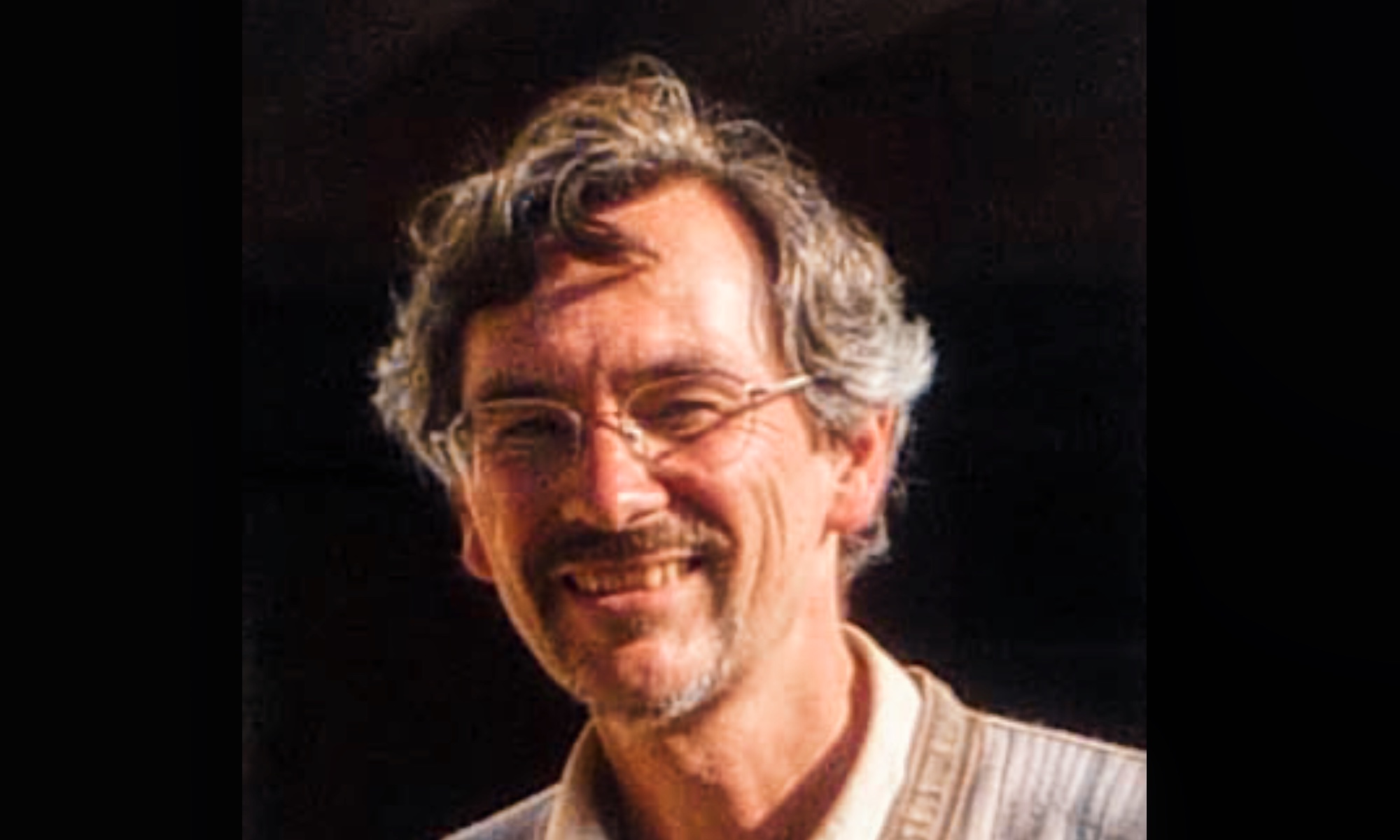Professor Martin Morris, History of Architecture, Chiba University, Japan
On Friday 20 May 2022 at 18:00 (Tokyo time), at 10am (Cambridge, UK time), Martin Morris (Trinity 1976), Professor Emeritus, Chiba University (Japan), Graduate School of Engineering, Architecture Course, Research Field: History of Architecture and Architectural Conservation, has kindly agreed to join us for a zoom discussion.
All Trinity College Cambridge Fellows, former Fellows, students, alumni and members very welcome.
- Friday 20 May 2022 at 18:00 (Tokyo time), at 10am (London/Cambridge time) – start
- 18:15 – 19:00 Martin Morris: Japanese Traditional Architecture
- 19:00 – 20:00 discussions
Prior registration required until Thursday 19 May 2022. Anonymous registrations are not accepted, please introduce yourself briefly when you register. For security there is a two-step pre-registration/registration process. Only pre-registered and approved participants can join the zoom event.
We will upload the recording to the Trinity in Japan Youtube Channel – by participating you agree to the upload of the recording:
https://www.youtube.com/trinityjapan?sub_confirmation=1
Professor Martin Morris (Trinity 1976)
Martin Morris (Trinity 1976) is Professor Emeritus, Chiba University Graduate School of Engineering, Architecture Course, Research Field: History of Architecture and Architectural Conservation.
http://www.eng.chiba-u.ac.jp/outProfile.tsv%3Fno=1063.html
Martin previously was for many years Professor of History of Architecture at Chiba University, Graduate School & Faculty of Engineering, in the fields of History of architecture, urban history, history of artificial environments, conservation and restoration of historic architecture, architectural design based on historical learning.
Major subjects of research:
Historical development of domestic architecture, focused on Japan from the Kofun Period to the end of the Edo Period. Analysis of the patterns of development and interaction between the house-types of different social groups & classes through time to achieve a grasp of the processes, social and technical, underlying the generation of house-types. Also engaged in East-West cross-cultural comparison of the development of lifestyles, at the level of both settlement and architecture, with a view to identifying the nature and significance of underlying similarities and differences, research into the development of building types and the impact of architecture on the environment through the ages.
Fascinated by history from childhood, combined this with architecture, studied at University, to research and teach the history of architecture and conservation of historic buildings. As a postgraduate researcher at Tokyo University in the 1980s & ‘90s, studied the development of the house in Japan, focusing on the relationship between elite and vernacular dwellings. From 1996, at Chiba University, involved in teaching History of Architecture (in Japan & globally), History of Residential Architecture, Conservation & Renovation of historic buildings, and related design courses. Currently working on historical study of Japanese house types in English. Interest in comparative analysis of architectural development through history in East and West and lessons of historic architecture for today’s world.
Born in Cambridge, England, UK. Graduated, 1979 (Architecture, Cambridge University), Dipl. Architecture, 1982 (Cambridge University), Monbusho Scholar from 1983 (Tokyo University), Master of Engineering, Architecture, 1986 (Tokyo University), Dr. of Engineering, Architecture, 1995 (Tokyo University), Lecturer, History of Architecture, 1996 (Chiba University), Associate Professor, History of Architecture, 2001 (Chiba University), Professor (2007 – 2022, retiring March, 2022)
Representative research papers, reports & translations:
- 一宮町の歴史的建造物調査報告書 玉崎神社旧社務所白寿庵の再検討 類例との比較を踏まえた考察、東上総文化遺産総合活性化事業実行委員会(千葉大学モリス研究室編)、平成28年度文化庁文化芸術振興費補助金(文化遺産を生かした地域活性化事業)、全174 pp.(2017年3月)
- 「一宮町の歴史的建造物調査報告書(平成27年度版)」、東上総文化遺産総合活性化事業実行委員会(もば建築文化研究所、千葉大学モリス研究室編)、平成26年度文化庁文化芸術振興費補助金(文化遺産を生かした地域活性化事業)、全65 pp. (2016年3月)
- 「一宮町の歴史的建造物調査報告書(平成26年度版)」、東上総文化遺産総合活性化事業実行委員会(もば建築文化研究所、千葉大学モリス研究室編)、平成26年度文化庁文化芸術振興費補助金(文化遺産を生かした地域活性化事業)、全70 pp. (2015年3月)
- “顧想園 Guide to Kosōen” (Registered Tangible Cultural Property Higashi Kurume City, Tokyo, Original Text by Ryūichi Mayuzumi),(2014年7月)、全8ページ
- “From Village Farmhouse to Suburban Oasis: reflecting upon Kosōen”, Martin Morris, The Transactions of the Asiatic Society of Japan, fifth series, vol. 6, 2014 pp.195-213
- “Nihon Minkaen: Japan Open-air Folk House Museum English Guide Book”, 監修、共同訳、マーティン モリス、発行:川崎市立日本民家園、全74pp. (2011年2月)
- 「ハンマービームトラスの由来と特性」、マーティン モリス、「千葉県指定有形文化財千葉教会教会堂保存修理工事報告書」、編集:岩瀬建築有限会社、発行:日本基督教団千葉教会 pp. 46-62 (2010年4月)
- “The shop-houses of Hanoi’s 36 Guild Streets Area – thoughts on their development, place in history and potential”, Martin Morris, 「開発著しいハノイ都市圏における近郊農村・下町・新住宅地の町づくり研究―生活調査と町づくり活動報告」昭和女子大学国際文化研究所紀要、Vol.13/2009における第2部第2章、編集発行人:金子朝子(ISSN 1341-0431) pp.73-106 (2010年3月)
- “Reading a minka frame – the lessons of the Yoshida House”, Martin Morris, 『建築史攷』(“Studies in Architectural History”)、編集:鈴木博之先生献呈論文集刊行会、中央公論美術出版(ISBN 978-4-8055-0622-6)pp.165-186 (2009年10月)
- 「蚕種業の発展と住居建築の変容」、マーティン モリス、「近世日本の地域社会と共同性―近世上田領上塩尻村の総合研究 I―」における第3章第2節、編集:長谷部弘、高橋基泰、山内太、刀水書房(ISBN 978-4-88708-376-9)pp.153-169 (2009年3月)
- 建築史学における「建造物の考古学」とその可能性−重要文化財江川家住宅修理工事報告書の活用を通して−、日本考古学第22号、47〜69、2006年11月
- Kyo-Machiya: Tracing the Development of the Traditional Town Houses of Kyoto through the Medieval Centuries, Vernacular Architecture Vol 37, 1-23, 2006、
- 近世初期上層住宅のサービス・システムにおける大台所の役割−『匠明』の「屋敷図」を中心とした指図と絵画資料の分析に基づいて−、日本建築学会計画系論文集、第532号、201-208、2000年、
- From the Ground up: the Reconstruction of Japanese Historic Buildings from Excavated Archaeological Data, Nichibunken Japan Review, No. 11, 3 – 30, 1999、
- Houses of the People, Kitchens of the Great: A Japanese Enigma, Architectural Research Quarterly, 52-63, 1997年、
- 近世初期上層住宅の台所と庶民住居、建築史学、第27号、2-33, 1996年
Registration and enquiries:
All Trinity members, Fellows and students globally are very welcome to pre-register, and I will send a registration link if there are still places available.
In “Your message” box please state:
- which event(s) you are interested to attend,
- your full name, briefly introduce yourself if this is your first time to attend a Trinity in Japan event,
- your affiliation with Trinity College Cambridge – Trinity students, PhD students are especially welcome
- If you are not associated with Trinity College Cambridge, you may still attend as a guest in certain cases – in this case please write a short sentence why you are interested to attend and participate in the discussion,
Thank you – we ask for your understanding that “anonymous” participation (eg name unknown to us, a free email eg hotmail / gmail / yahoo etc) is not possible. We cannot answer “anonymous” requests.
Copyright (c) 2022 Trinity in Japan Society All Rights Reserved

Leave a Reply